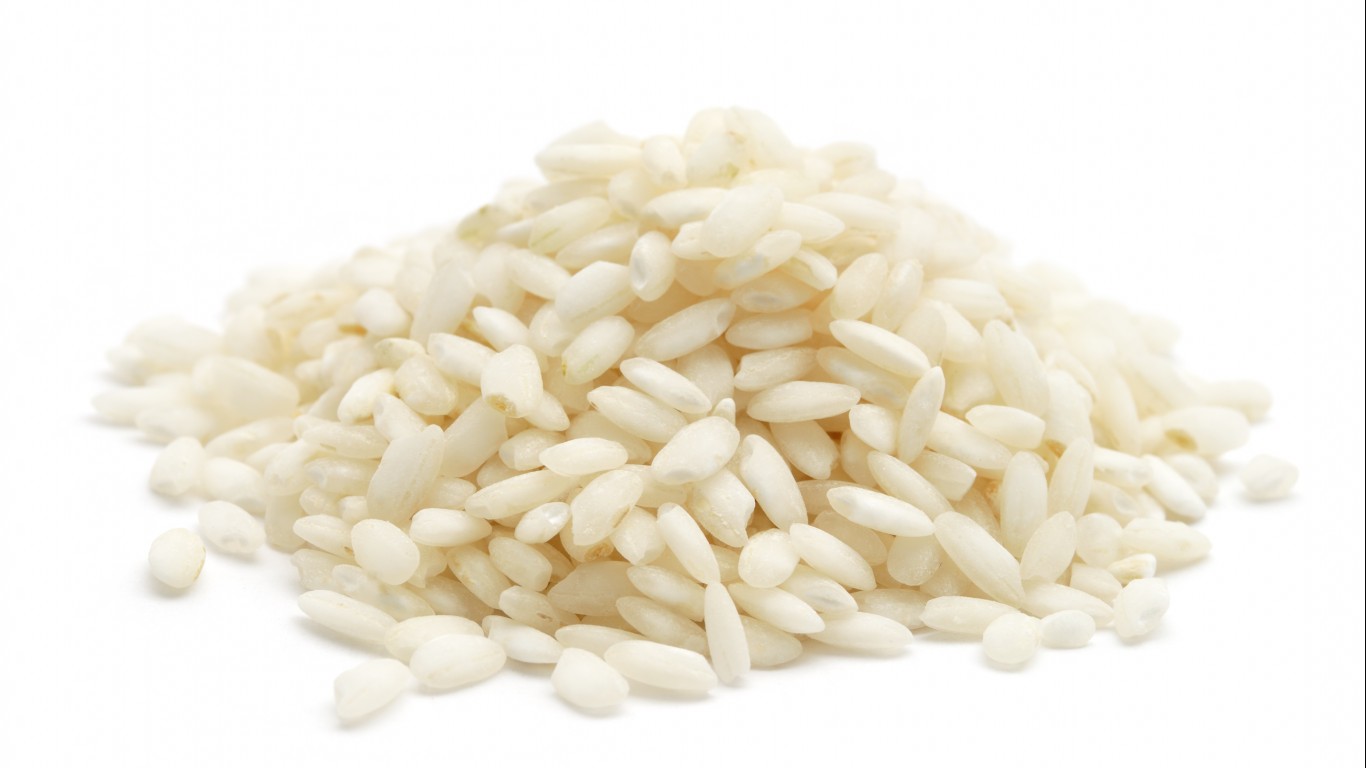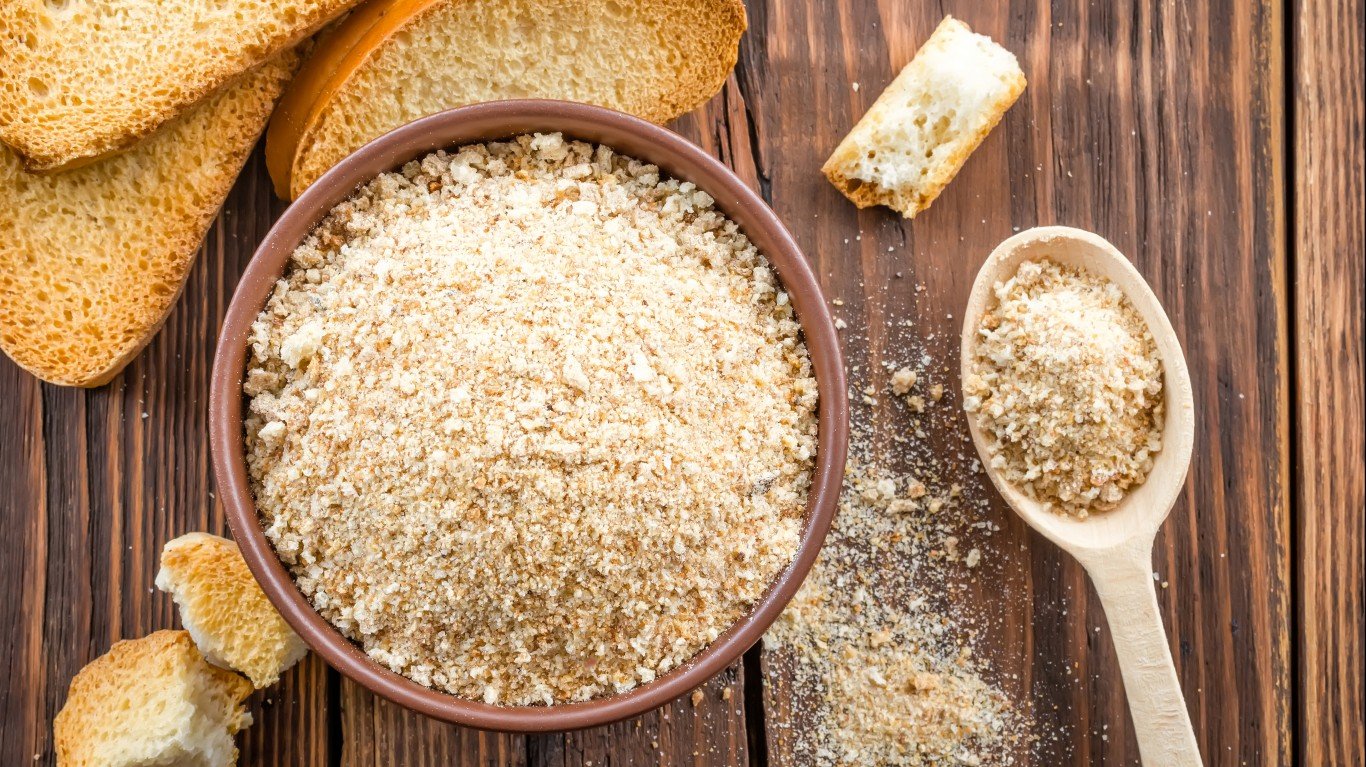We get our word “pantry” from the Middle French word “paneterie,” meaning a place where bread was stored. The term evolved to describe a small room, closet, or cabinet where non-perishable food items and beverages (and sometimes cleaning supplies, extra dishes and glassware, and other things) were stored.
Today, though, “pantry” has acquired a metaphorical sense, too, describing not necessarily a place where things are kept but the accumulation of things cooks find essential to the way they like to eat, regardless of where they’re stored — a cupboard, a shelf, a kitchen counter. (Strictly speaking, pantry basics are items that don’t need to be refrigerated, at least when you first bring them home, though some should be kept in the fridge after they’re opened.)
The idea of a pantry isn’t to provide full meals (though the imaginative cook can often put together an impromptu dinner from its contents), but to supplement fresh foods brought home from the market. Starches, condiments, and seasonings are among the items a pantry should have, and if properly stored, they’ll last a long time. (These are 20 foods you should buy during a quarantine because of their long shelf lives.)
24/7 Tempo has put together a list of essentials that every pantry should probably include. “Probably,” because everyone’s tastes are different, of course. If you’re a vegetarian, you won’t need chicken or beef stock or anchovy paste. If you’re gluten-intolerant, forget the flour and the bread crumbs. If you prepare a lot of Asian dishes, you’ll likely want to add such ingredients as sesame oil, rice wine vinegar, and mirin. If Mexican food’s your thing, you’ll probably want an array of dried chiles, achiote (annatto) seeds, and masa harina. (Products like these get lots of use at the best Mexican restaurants in every state.)
These, though, are 35 pantry staples that almost everyone will use at one time or another.

1. Beef or chicken stock
Homemade stock is best (save your beef or chicken bones), but the kind that comes in cans or cartons is surprisingly good for making soups and stews, adding flavor to rice or grain dishes, moistening casseroles, and more.

2. Vegetable stock
Even if you’re not a vegan or vegetarian, you might sometimes want to make a soup or other dish whose flavor isn’t overpowered with the taste of beef or chicken.

3. Canned soup
It’s always good to have a few cans of your favorite soup (tomato, mushroom, whatever) on hand for a quick informal meal — but also for use in casseroles and other dishes.

4. White rice
The world’s most popular grain by far, rice makes a perfect easy side dish and is a popular ingredient for casseroles and even desserts — most of all rice pudding. (Brown rice is more nutritious than white and can fulfill all the same functions.)

5. Short-grain rice
Whether it’s Italian risotto rice (like Aborio), Spanish paella rice, or Japanese sushi rice, short-grain rice adds another dimension to rice cookery, and has textural properties that ordinary white rice can’t match.

6. Dried pasta
Everybody loves pasta, and it’s one of the foods with the longest shelf life. Keep at least two kinds in stock — long noodles like spaghetti or fettuccine and short shapes like farfalle, penne, or rigatoni. (In general, the shorter ones are better for chunky additions like sausage or mushrooms, the long noodles for smooth ones like pesto or tomato sauce.)

7. Dried beans
Another food that keeps almost forever, dried beans are easy to cook and a great source of non-animal protein. (The older the beans are, the longer they’ll take to cook.)

8. All-purpose flour
Flour is useful in the kitchen not just for the obvious reason (baking) but to thicken sauces or coat fish, veal, or chicken for frying, among other things.

9. Cornmeal
Cook it into polenta as a side dish, add it to bread dough or pancake batter, dredge fish or chicken in it, scatter it under a pizza crust before bakingâ¦. Cornmeal has many uses.

10. Baking powder
It’s essential for many baking recipes, of course, but baking powder can be stirred into water to make a cleaning solution, added to dried beans as they cook to make them less gas-inducing, left open in the refrigerator or freezer as a deodorizer, etc.

11. Tomato paste
Tomato paste enriches tomato sauce, of course, but adds texture and flavor to sauces, soups, and stews of all kinds.

12. Canned tomatoes
Buy chopped tomatoes in cans, with or without basil, or purée the whole ones in a blender or food processor for instant tomato sauce for pasta or pizza or (diluted) for tomato soup. (San Marzano tomatoes from Italy are considered the ultimate example.)

13. Anchovy paste
Even if you don’t like anchovies, you’ll be surprised at the subtle non-fishy depth of flavor a bit of the paste adds to soups, stews, pâtés, and many other dishes — even those based on meat.

14. Peanut butter
It’s not just for peanut butter and jelly sandwiches. Peanut butter makes an instant snack spread on crackers, apple slices, or celery sticks, and also adds a delicious new dimension to such dishes as curries and marinades for chicken.

15. Honey
A great alternative sweetener (the Greeks stir it into yogurt), honey also has a number of surprising medicinal properties. Among other things, it helps soothe sore throats, tamps down acid reflux, even relieves burns.

16. Extra-virgin olive oil
The ultimate oil for the kitchen, extra-virgin olive oil is essential for salad dressings. It’s also a perfect cooking medium for many foods, a tasty seasoning for vegetables, and a good protective coating for pots and pans.

17. Vegetable oil
For deep-frying or for cooking foods that might be overpowered by the flavor of good olive oil, a more neutral oil — for instance, canola, corn, or peanut — is good to have.

18. White wine vinegar
This is the vinegar you’ll want for brining meats and poultry, pickling fruits and vegetables, making classic sauces like hollandaise or beurre blanc, and adding an attractive sharpness to soups and stews. In addition, it’s a great kitchen cleanser.
19. Sherry vinegar
Trendy balsamic vinegar has pushed it aside in recent years, but sherry vinegar makes superb salad dressings and marinades, and is an unexpectedly delightful condiment to simply drizzle over roasted pork, chicken, or fish.

20. Soy sauce
A must for many Asian recipes, soy sauce is also a good addition to marinades of many kinds, a flavorful ingredient for glazes, and a traditional condiment for simply cooked rice (and sushi).

21. Mustard
It’s impossible to imagine pretzels, hot dogs, or ham sandwiches (among others) without mustard, but it’s also an ingredient of classic vinaigrette and adds punch to sauces for chicken or beef, glazes for baked ham or roast tenderloin, dips for raw vegetables, and much more.

22. Mayonnaise
The ultimate sandwich spread, mayo can also be used to make breading stick to fish or meat, add richness to casseroles, even keep chocolate cake or brownies moist.

23. Ketchup
French fries seem naked without it and ketchup has a place at the breakfast table and on burger night — but it’s also an important ingredient of cocktail sauce, barbecue sauce, various glazes, and more.

24. Worcestershire sauce
A few drops of this pungent condiment (involving anchovies, molasses, garlic, and other ingredients in a vinegar base) adds character to sauces and dressings of many kinds, and is essential for bloody marys.

25. Bread crumbs
Use bread crumbs, whether the conventional coarse kind or finer Japanese-style panko, for breading meat, fish, or fowl for frying or in stuffings for vegetables or chicken.

26. Fine salt
Salt is simply the single most important and widely useful ingredient in any kitchen.

27. Coarse salt
While fine salt is best for cooking and baking, coarse salt is preferable for seasoning food once it’s ready to eat.

28. Black peppercorns
Salt’s longtime partner on dining tables, black pepper adds heat and pungent flavor to foods. Freshly ground peppercorns are best.

29. Granulated sugar
Fine-ground sugar is not only a necessity for most baking (even bread) and a sweet addition to breakfast cereal (including oatmeal), but is called for in many savory recipes.

30. Brown sugar
Whenever a caramelized character is called for in dishes either sweet or salty, brown sugar is the way to go.

31. Bay leaves
Added to stews and sauces as they cook, these leaves from the bay laurel tree contribute a subtle flavor.

32. Red pepper flakes
If you like a bit of heat, these flakes are a nice addition to pizza and pasta.

33. Ground cayenne
Cayenne adds spice but also a pleasant, slightly smoky flavor to many dishes.

34. Sweet paprika
For color and flavor, this is one of the most useful spices in the kitchen.

35. Curry powder
You don’t have to cook Indian or Thai cuisine to find uses for this complex blend of spices. Hamburgers and meatballs, scrambled eggs or egg salad, potato salad, and fried rice are just a few of the foods it enhances.

